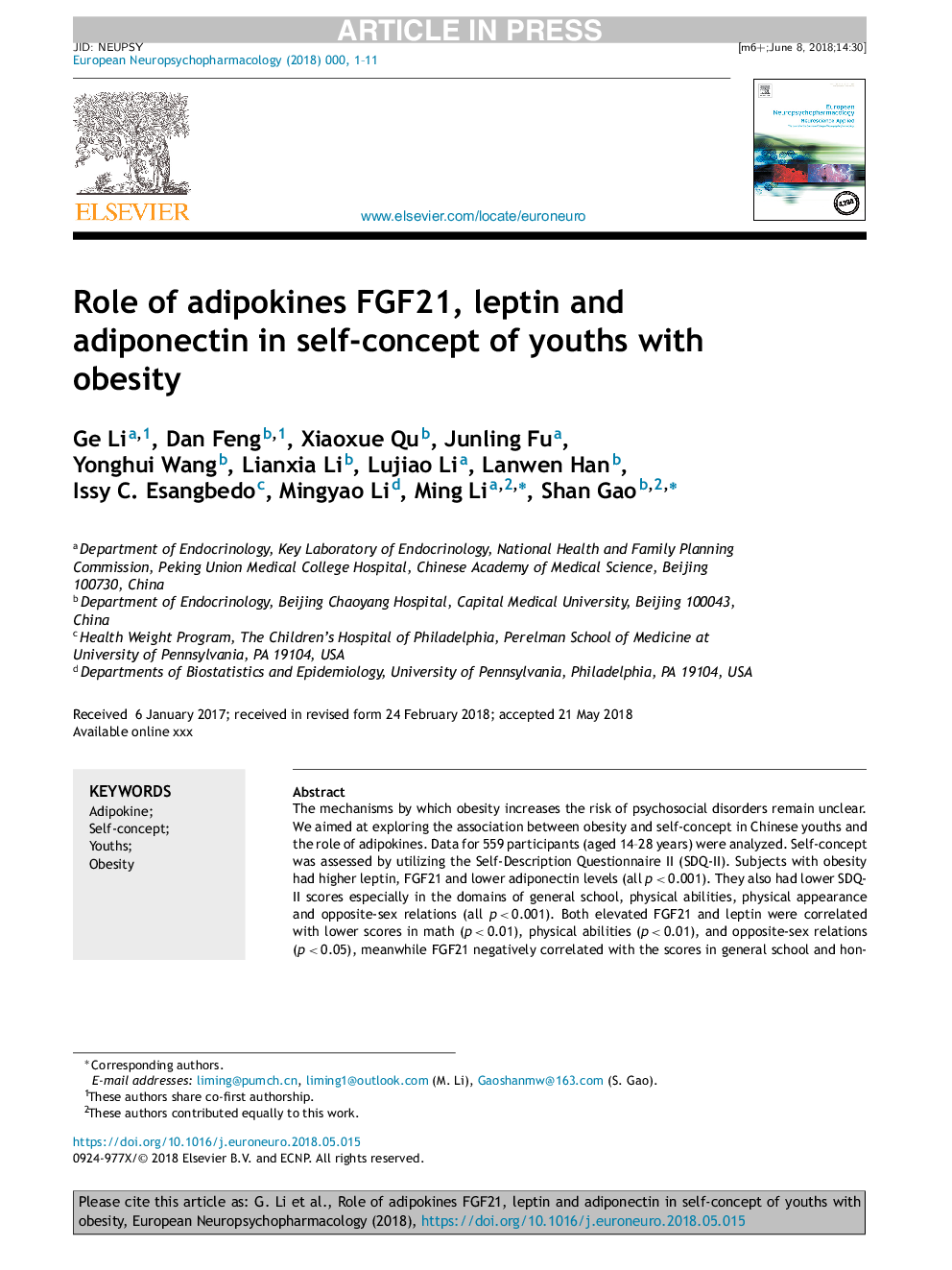| Article ID | Journal | Published Year | Pages | File Type |
|---|---|---|---|---|
| 8941670 | European Neuropsychopharmacology | 2018 | 11 Pages |
Abstract
The mechanisms by which obesity increases the risk of psychosocial disorders remain unclear. We aimed at exploring the association between obesity and self-concept in Chinese youths and the role of adipokines. Data for 559 participants (aged 14-28 years) were analyzed. Self-concept was assessed by utilizing the Self-Description Questionnaire II (SDQ-II). Subjects with obesity had higher leptin, FGF21 and lower adiponectin levels (all pâ¯<â¯0.001). They also had lower SDQ-II scores especially in the domains of general school, physical abilities, physical appearance and opposite-sex relations (all pâ¯<â¯0.001). Both elevated FGF21 and leptin were correlated with lower scores in math (pâ¯<â¯0.01), physical abilities (pâ¯<â¯0.01), and opposite-sex relations (pâ¯<â¯0.05), meanwhile FGF21 negatively correlated with the scores in general school and honesty/trustworthiness, and leptin negatively correlated with physical appearance (pâ¯<â¯0.01) but positively with verbal (pâ¯<â¯0.01). In contrast, decreased adiponectin was correlated with poorer physical abilities (pâ¯<â¯0.05), physical appearance (pâ¯<â¯0.05), and parent relations (pâ¯<â¯0.01). Moreover, these associations of leptin, FGF21 and adiponectin with certain domains remained significant after adjustment for BMI and other metabolic confounders. In conclusion, youths with obesity experienced poorly on self-concept, and these associations may be explained in part by adipokines leptin, FGF21 and adiponectin.
Keywords
Related Topics
Life Sciences
Neuroscience
Biological Psychiatry
Authors
Li Ge, Feng Dan, Qu Xiaoxue, Fu Junling, Wang Yonghui, Li Lianxia, Li Lujiao, Lanwen Han, Issy C. Esangbedo, Mingyao Li, Li Ming, Gao Shan,
